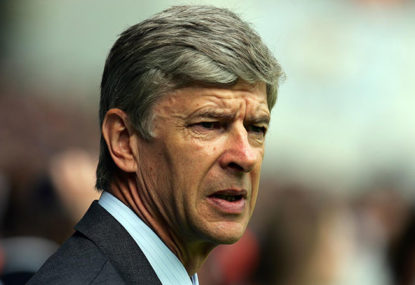'A great night': Gunners shoot Kai high at top of standings after obliterating Chelsea for biggest win in 94 years
Kai Havertz has scored twice against his former team and Ben White also got a brace as Arsenal brushed aside a dismal Chelsea side…

I do hope Ivan Gazidis and the Arsenal board have taken note of how the whole David Moyes and Manchester United relationship worked out, as it provides two valuable lessons about how they should handle the end of Arsene Wenger’s tenure as the Gunners’ manager.
1. A younger manager must have a history of success
David Moyes managed Everton for 11 years and, despite what some would have you believe, did a mighty fine job. He took the club from battling relegation to the precipice of the top four. However, after spending that much time at low-to-mid-table club, coping with the expectations and challenges associated with a top tier club proved too great.
The style of football Moyes developed at Everton (defensive and direct) worked, but was never going to cut it at Manchester United.
If you look at the most successful new managers of top clubs, unless they already have top-tier experience, they are almost inevitably younger managers with an established history of winning. Take the most successful clubs in the Premier League era as an example:
While Moyes had been successful at Everton, he did not have the experience of winning needed to be successful at a big club. Manuel Pellegrini, another manager without the taste of success, is looking unlikely to guide Manchester City to anything beyond the Capital One Cup, despite having an enormous squad worth almost one billion pounds.
This is why, if Arsenal are targeting a younger manager, it should be either Jurgen Klopp (twice Bundesliga winner and Champions League finalist with Borussia Dortmund) or Diego Simeone (who looks odds-on to break the duopoly in Spain with his Athletico Madrid side). Both fit the age profile, and have the history associated with being a successful manager at one of the biggest clubs in the world.
There are obviously exceptions to this rule, such as Pep Guardiola, who stepped into the Barcelona job and guided them through their most ever successful ever era, but they are exceedingly rare. People championing current Everton manager Roberto Martinez should remember there are a lot more David Moyes than Pep Guardiolas.
2. Arsene Wenger must not choose his successor
The most successful managers are egomaniacs who believe that they are always right – look no further than the three managers mentioned above. This is fine when the decisions they are making are about managing a football team, since they are experts at this, but it’s another matter when it comes to selecting their successor.
It is only natural that Alex Ferguson thought he was best placed to choose his successor, and I’m sure Arsene Wenger thinks the same, but this is not where their expertise lies. Being able to manage a club successfully is a different skill from being able to identify who could do the same. You would never find the CEO of a major company appointing his or her own successor, nor should it be the case at a football club.
The most successful cases of appointment come from a dedicated team whose specific job it is to identify and acquire managerial targets, such as Bayern Munich’s swoop for the aforementioned Pep Guardiola.
Any major club looking to appoint a manager any other way is not maximising their chance of appointing someone who will be successful.